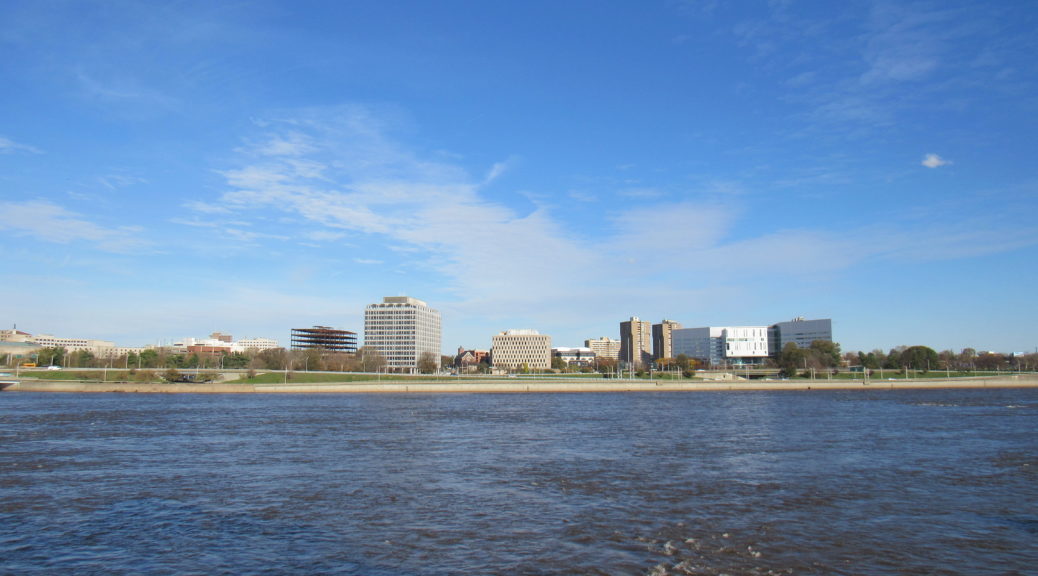
By Joshua Trifari
New Jersey is perhaps one of the states most vulnerable to climate disaster in the upcoming century. Several areas of the Garden State are very low-lying, leaving many neighborhoods, both poor and wealthy, likely to experience flooding.
A disaster like Superstorm Sandy in 2012 was predicted to occur only once every 260 years in New Jersey, according to an article published by Stevens Institute of Technology. However, by the end of the century, New Jersey can expect to see a storm with a similar intensity and impact of Sandy once every five years. This brings serious questions as to how New Jersey would be able to sustain such recurring damages from the storms to come.
In an interview with The Streetlight, Jay Everett of Cranford-based Monarch Housing Associates, stated that the effects of sea level rise can decrease property stock and increase property values, therefore making housing less accessible.
The National Low Income Housing Coalition’s 2019 “Out of Reach” report shows that in order to afford to rent a two-bedroom home in New Jersey, a household would need to earn $28.86 an hour. The current minimum wage in New Jersey is $10 an hour, though that is scheduled to increase over the coming years. Everett noted that even families with more middle-class incomes struggle with affording the cost of housing in New Jersey. He suggested that increasing the availability of housing stock that is both affordable and sustainable in places that are not vulnerable to persistent flooding would provide a buffer against the impacts of climate change on homelessness.
In Trenton, some of the potential impacts of climate change have already been studied. In a scenario of one foot of sea level rise, the Delaware River will flood more intensely according to the Climate Central Surging Seas Risk Zone Map, as well as creeks that lead into the Delaware River, such as Assunpink Creek, which runs through downtown Trenton. At two feet of sea level rise, parts of I-195 and I-295 in Hamilton Township, just outside of Trenton leading into the city, will become impassable.
Warmer temperatures are also expected. By 2050, New Jersey is expected to experience 34 “Danger Days” per year according to an analysis by Climate Central, where the heat index will exceed 105°F. Currently, New Jersey only experiences about seven “Danger Days” per year. By 2100, the Summer average temperature in New Jersey is expected to feel like Miami, increasing by 9°F.
Trenton’s population experiencing homelessness has already experienced concerns due to extreme weather. As reported in a previous edition of The Streetlight, the Trenton Free Public Library was forced to close down several times during the summer of 2019 due to the air conditioning not functioning properly.
In an interview, when asked about the city’s concern for the vulnerability of the homeless population, Trenton Mayor Reed Gusciora’s Chief of Staff, Yoshi Manale, told The Streetlight that “the City of Trenton does a good job of keeping housing prices low and foreclosures low,” which he said helps prevent people from entering homelessness. However, Manale noted that he does not have specific expertise as to how climate change can impact homelessness.
In 2010, the Bloustein School of Planning and Public Policy at Rutgers University prepared a climate action plan for the City of Trenton. This plan includes recommendations for municipal operations, community- wide energy efficiency programs, water conservation, and community waste reduction. Emphasis was placed on making the housing stock in Trenton more energy efficient, while other parts of the report note how planting native vegetation near Assunpink Creek could prevent flooding and describe plans to work with the East Trenton Collaborative to make the area around the creek more resistant to flooding. However, the report makes no mention of the impact of climate change on people experiencing homelessness in Trenton.

